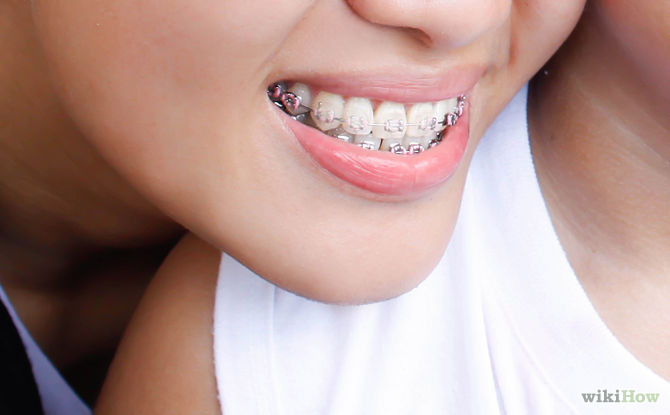There are two types of teenagers when it comes to getting braces. The first wants braces—he’s sick of having crooked teeth and is excited to get his treatment started. The second doesn’t want braces. These teenagers don’t care that they have crooked teeth or that straighter teen with make them more confident or that their teeth will be easier to keep clean. They are only concerned about how the braces will make them look and the possibility of being teased for having braces. No matter which type of teenager you’ve got, here are some tips to help that kid deal with his braces:
1. Be patient with a less compliant kid.
A big part of how effective treatments like metal braces and Invisalign are has to do with how compliant the kid is during the treatment. If a child has a hard time staying compliant with his treatment, you as the parent have to direct him. That usually means exercising a lot of patient with that individual. If you’re really having trouble getting a kid to stick to the proper diet and cleaning schedule, you can always discuss the issue with Dr. Gemmi or Dr. Middleberg.
2.Education is key.
If you didn’t have braces as a kid, then you might not know how uncomfortable it can be or how difficult they can be to deal with. If you’re going to help your teenager, then you’ll probably want to research braces, what they do, and proper cleaning methods. There are a few tools and tips that can be extremely useful for helping kids get their mouths clean, like Waterpiks and special bendable spoolie brushes. Knowing what your kid’s mouth is going through can make a big difference when you’re trying to help him keep his mouth clean and following the proper diet.
3.Be supportive.
You are obviously already being supportive. This tip is more in relation to the sometimes unconscious sabotage that parents will do to their children. These things might include buying and keeping hard or chewy candy around the house. Popping or buying popcorn for a movie, offering your child gum, packing lunches that include food items he’s not supposed to eat, and the like. Being a teenager and having braces is difficult enough without always having to constantly say no to what your family is eating and doing.
4.Encourage the good habits.
If your child has a hard time remembering to do his salt water rinses, you can help him remember by making the rinse and putting it down in front of him. Little encouragements like this can make a big impact in the efficacy of the treatment and the health of your child’s mouth. If you see him starting to eat or do something he’s not supposed to do, you don’t have to slap it out of his hands, but saying something is always a good idea.
5.Keep mealtimes braces-friendly.
One of the most difficult parts about having braces is not being able to eat what your friends or family are eating. While you can’t control what he eats when he’s away from home, you can control what goes into that mouth while he’s under your roof. Making dinners and lunches that are soft and chewable (but not chewy) can be a great way to keep mealtimes braces-friendly. This is especially important just after he’s gotten his braces on or had an adjustment, when his teeth and gums will be especially sore.
6.Avoid the crunch.
Biting down on something crunchy can help to relieve soreness and pressure in the teeth and jaws, but it can be very bad for the braces themselves. Crunchy foods mean hard foods, and hard foods can bend the wire, damage a bracket, or even pop a bracket off. If you want to help your teen avoid having to make an emergency appointment with our office, you’ll want to avoid crunchy foods as much as possible. Plus, the crunch might be satisfying in the short term, but it can actually make the teeth more sore in the long-term.
7.Give them something cold to eat or drink.
Not only will the cold help to soothe any and all inflammation that the teen might be experiencing in his mouth, it can actually prevent soreness and discomfort. Giving him something cold to eat or drink can be a great way to soothe any pain that he might be feeling. Ice cream, cold yogurt, chilled soups, and cold water are all great options during this time. Just remember to make sure he brushes his teeth thoroughly after having something sugary.
8.Make sure he feels he can voice his pain and discomfort.
The worst thing about having braces is sometimes feeling like you have to suffer in silence. If your child is being scratched or poked by the brackets or wire, that is something that we want to know, but we’ll probably never find out about it if your child doesn’t feel like he can tell us or you that his mouth hurts. Make sure he knows that it’s alright to tell you that his teeth, gums, or cheeks are in pain.
9.Discuss the expectations.
When a teenager gets braces on, hearing that they have to wear them for a year or two or three is equivalent to telling that teenager they have to wear them for the rest of their lives. Help that teen understand why complying with the rules speeds up the treatment and how he can make the best of this time.

